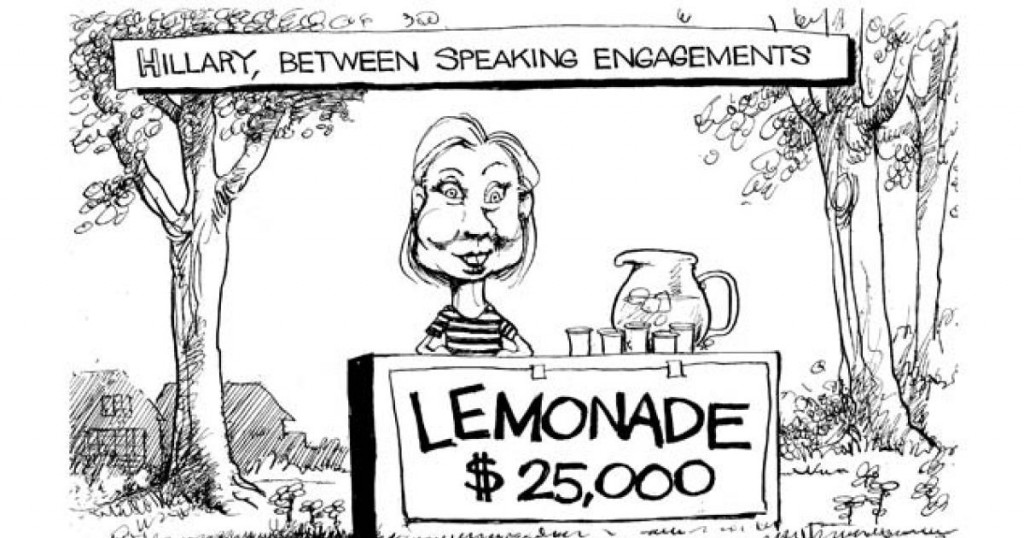Daniel Halper writes: Wealthy Americans who seek to amass political power have always been able to do so with relative ease, as long as they go about it with skill. Until recently, however, it has not been the case (as it is in many countries) that political power has been a precursor to, or a significant factor in, the accumulation of immense wealth.
Peter Schweizer in his important new book, Clinton Cash: The Untold Story of How and Why Foreign Governments and Business Helped Make Bill and Hillary Rich writes: When Hillary entered the Senate, and then the State Department, she became the one who had real power, rather than Bill.”
Schweizer sets out to provide a window into just how the former president and former secretary of state (and perhaps future president) left the White House “dead broke,” as Hillary Clinton claimed in a book-tour interview last year, before earning at least $136.5 million in the decade and a half since then.
Bureaucratic or legislative obstacles were mysteriously cleared or approvals granted within the purview of his wife, the powerful senator or secretary of state. Huge donations then flowed into the Clinton Foundation while Bill received enormous speaking fees underwritten by the very businessmen who benefited from these apparent interventions.
Sometimes the money would go directly to Bill Clinton’s personal bank account, other times to the family foundation. There was also the case involving the telecom company Ericsson, which invested in Bill Clinton’s biggest single payday: $750,000 for a 2011 speech in Hong Kong. A week after the speech, “the State Department unveiled its new sanctions list for Iran. Telecom was not on the list.”
There was Hillary Clinton’s push as secretary of state to have Russia buy airplanes from Boeing. Two months after the American company and the Russians inked the deal, Boeing gave $900,000 to the Clinton Foundation.
Schweizer offers details about a financial windfall after Bill was befriended by those seeking to buy a share of America’s uranium supply and about how the former president helped give prominence and credibility to the strongman in Kazakhstan.
The majority of the examples Schweizer provides are of business conducted in countries ruled by despots. This is because, as he explains, “in places like Germany or Great Britain…business and politics are kept separate by stringent ethical rules and procedures, but in despotic areas of the developing world…rules are very different.”
But there is no definitive proof of any quid pro quo at work in this lawyerly book: Schweizer even allows that in certain instances, it may very well be pure coincidence
There is much talk that Mrs. Clinton would be a pathbreaking president should she win in November 2016. That would surely be true, but it would be as much for her innovations in blurring the lines between political power and personal economic gain as it would be for her gender.

